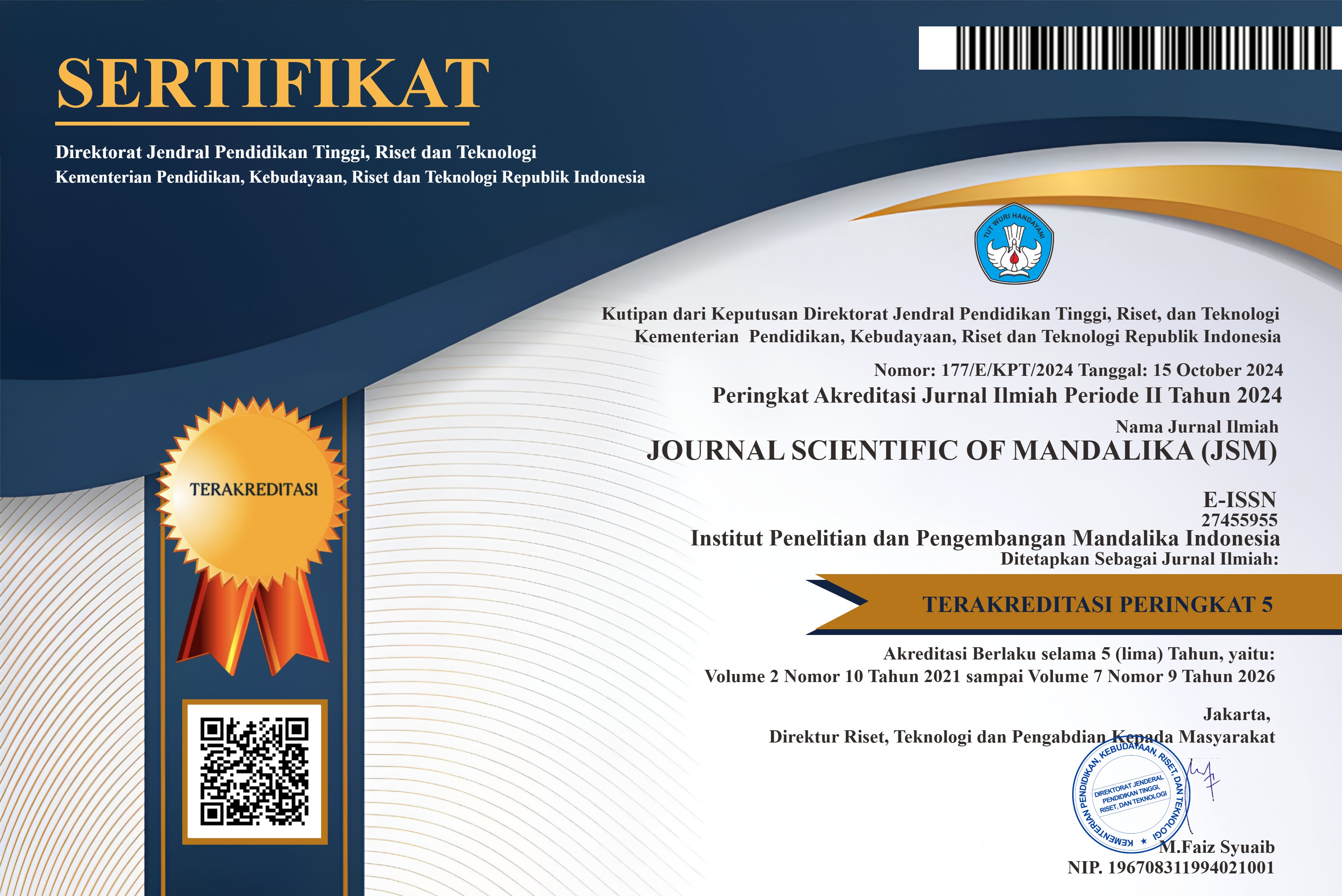Analisis Etika Pemasaran Syariah dalam Pengelolaan Usaha Franchise Gen Z (Studi Kasus pada Usaha Es di Indonesia di Jl. Sukawati Kabupaten Bone)
Abstract
This research aims to analyze and describe the implementation of Islamic marketing ethics in the management of franchise businesses operated by Generation Z, with a case study on Es Teh Indonesia business located on Jl. Sukawati, Bone Regency. The approach used is qualitative with field research methods. Primary and secondary data were obtained through in-depth interviews with owners and employees, direct observation of business activities, and analysis of internal documents. Data validity was strengthened through source and method triangulation techniques. The research results show that Es Teh Indonesia business has implemented Islamic marketing ethics in a real and structured manner. The principle of Tauhid (Unity) is manifested through the use of halal raw materials, price transparency, avoidance of riba (usury), and awareness of paying zakat. The principle of Honesty is evident in information transparency, acknowledgment of mistakes, and prompt and appropriate handling of customer complaints. The principle of Acting Fairly is reflected in equal treatment of customers and employees, consistent pricing, and stakeholder involvement in decision-making. The principle of Serving with Humility is reflected in the friendly, polite, and solution-oriented attitude of employees in providing services. The implementation of these four principles of Islamic marketing ethics is not applied partially, but is functionally integrated in all aspects of franchise business management, including planning, organizing, actuating, and controlling. This integration contributes to the formation of a positive image, increased customer trust, and business sustainability amid competitive market competition.
References
Aisyah, J. N., Aulia, M. A., Ayuni, Q., & Mualimin, M. (2024). Perencanaan Strategis Dalam Meningkatkan Kinerja Organisasi. Jurnal Manajemen Dan Pendidikan Agama Islam, 2(4), 147–155.
Angela, S. (2022). Pengaruh Persepsi Customer Terhadap Pelayanan Gerai Es Teh Indonesia Dan Implikasi Terhadap Citra Bisnis. Jurnal Ilmu Komunikasi (JKMS), 11(2), 1–11.
Atmoko, D. (2022). Penerapan Asas Proporsionalitas Dalam Perjanjian Waralaba (Franchise) Pada Suatu Hubungan Kontrak Bisnis. Jurnal Hukum Sasana, 8(1).
Damanik, A. Z. (2024). Peran Hukum Ekonomi Syariah Dalam Mengatur Transaksi Bisnis Syariah. Eksekusi: Jurnal Ilmu Hukum Dan Administrasi Negara, 2(3), 434–441.
Hamsal, M., Dwidienawati, D., Ichsan, M., Syamil, A., & Trigunarsyah, B. (2022). Multi-Perspective Approach to Building Team Resilience in Project Management—A Case Study in Indonesia. Sustainability, 14(20), 13137.
Hidayat, C., Ariza, R., Fadillah, A., & Reza, M. (2024). Amali. 2024.“Sharia Marketing in Business: Paradigm, Ethics and Implementation of Islamic Principles.” Indonesian Journal of Contemporary Multidisciplinary Research, 3(4), 571–582.
Nufus, W. F. K., Rachmatika, T. H., & Kinkin, D. A. R. (2024). Penerapan Etika Pemasaran Islam Dalam Penggunaan Digital Marketing Pada Usaha Mikro Kecil Dan Menengah (UMKM). Proceedings of Islamic Economics, Business, and Philanthropy, 3(1), 11–23.
Nugroho, R. H., & Kusumasari, I. R. (2022). Perkembangan Franchise Di Indonesia. Jurnal Bisnis Indonesia, 13(2).
Ortiz, C., Quezada, L., & Oddershede, A. (2024). Industrial Process Management Model to Improve Productivity and Reduce Waste. Sustainability, 16(4), 1606.
Permana, S. (2019). Penerapan Prinsip Syariah dalam Praktik Perjanjian Waralaba Syariah. Jurnal Hukum Dan Bisnis (Selisik), 5(1), 77–91.
Ramírez-García, C., Ramón-Jerónimo, M. Á., de Perea, J. G.-Á., & Vélez-Elorza, M. L. (2024). Risk sources and the effectiveness of the control system in the franchisor’s risk perception management. Industrial Marketing Management, 117, 202–219.
Roehrich, J. K., Davies, A., Tyler, B. B., Mishra, A., & Bendoly, E. (2023). Large interorganizational projects (LIPs): Toward an integrative perspective and research agenda on interorganizational governance.
Satiadharmanto, D. F., Huda, M. D., Yusuf, M. A., Nugraha, M. Q., & Muhtadin, I. (2024). Loyalitas Konsumen Pasca Pandemi: Menerapkan Prinsip-Prinsip Islam Dalam Servicescape, Pemasaran Media Sosial, Dan Kualitas Produk. Among Makarti, 17(2), 175–194.
Sudana, S., Marpuah, M., Dermawan, M. J., Samudra, M. G., & Alfaqih, M. (2024). Islamic Principles of Justice in Cross-Cultural Business Transactions: A Phenomenological Study in Indonesian Multicultural Business Context. Kawanua International Journal of Multicultural Studies, 5(2), 215–241.
Supardi, S. (2022). Implementation of Corporate Social Responsibility In Indonesia Based on Ius Positum And Islamic Principles. Journal of Governance, 7(1).
Talib, A., Paturochman, I. R., Ansyori, A., & Al-Amin, A.-A. (2024). Challenges and opportunities in implementing sharia principles in business management. International Journal of Sharia Business Management, 3(1), 1–8.
Copyright (c) 2025 Silvianti. S, Muhammad Yamin, Rahma Hidayati Darwis

This work is licensed under a Creative Commons Attribution-ShareAlike 4.0 International License.













